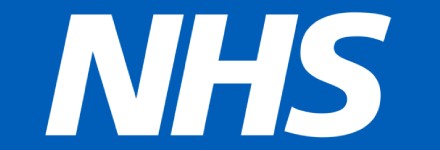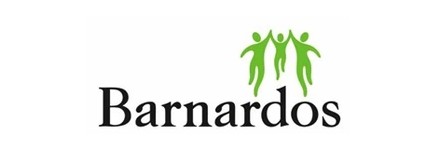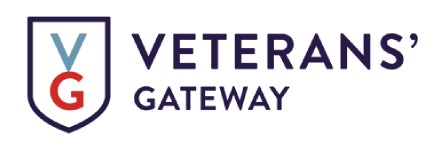Get Help
Hollow Heart can help signpost you to some wonderful organisations.
Got a question? Check out our help FAQ below.
Are you or someone you know in imminent danger? If this is an emergency, then dial 999, go to your nearest A&E department or call 111.
Disclaimer
We are only promoting established organisations with a good track record, and whilst we have gone to every effort to make sure these organisations are good, we encourage you to do your own due diligence when reaching out for support.
Mind
We’re Mind. We’re here to fight mental health. For support for respect, for you. We change minds across England and Wales by making mental health an everyday priority. By standing up to the injustices – in healthcare, in work, in law – which make life harder for those of us with mental health problems.
We support minds – offering help whenever you might need it through our information, advice and local services. And we connect minds. Bringing together an unstoppable network of individuals and communities – people who care about mental health to make a difference.
Shout
Shout is the UK’s first and only free, confidential, 24/7 text messaging support service for anyone who is struggling to cope. We launched publicly in May 2019 and we’ve had more than 1.7 million conversations with people who are anxious, stressed, depressed, suicidal or overwhelmed and who need in-the-moment support.
Samaritans
We’re here, day or night, for anyone who’s struggling to cope, who needs someone to listen without judgement or pressure.
Samaritans is not only for the moment of crisis, we’re taking action to prevent the crisis.
We give people ways to cope and the skills to be there for others. And we encourage, promote and celebrate those moments of connection between people that can save lives.
We offer listening and support to people and communities in times of need.
In prisons, schools, hospitals and on the rail network, Samaritans are working with people who are going through a difficult time and training others to do the same.Mental Health Foundation
We’re here, day or night, for anyone who’s struggling to cope, who needs someone to listen without judgement or pressure.
Samaritans is not only for the moment of crisis, we’re taking action to prevent the crisis.
We give people ways to cope and the skills to be there for others. And we encourage, promote and celebrate those moments of connection between people that can save lives.
We offer listening and support to people and communities in times of need.
In prisons, schools, hospitals and on the rail network, Samaritans are working with people who are going through a difficult time and training others to do the same.The Veterans Gateway
The Veterans’ Gateway service is the first point of contact for all Tri-Service veterans, and their families. Its expert content covers welfare areas: housing, employment, finances, living independently, mental wellbeing, families and communities, and physical health. Its unique support (both in the UK and abroad) is funded by the Armed Forces Covenant. And supported by charities and organisations and individuals, including the the National Health Service (NHS), the Government of the United Kingdom (GOV.UK) and the Ministry of Defence (MOD).
NHS
Op Courage is the NHS service that provides specialist care for those Armed forces veterans suffering from a mental health crisis. The new service combines the Veterans’ Mental Health Transition, Intervention and Liaison Service (TILS), the Veterans’ Mental Health Complex Treatment Service (CTS) and the Veterans’ Mental Health High Intensity Service (HIS). This means that veterans can access the most suitable level of service for them across seven regions in England.
If you live in Northern Ireland, Scotland or Wales please see details at the bottom of this guide for help from the NHS with your mental wellbeing.
Urgent NHS help with your mental health if you live in Northern Ireland, Scotland or Wales
Although you are not currently eligible for Op Courage the information below lists dedicated services.
Northern Ireland: Veterans can access dedicated support through the Northern Ireland Veterans’ Support Office.
Scotland: veterans can access veteran-led mental health, and welfare support through Veterans First Point, part of
NHS Scotland. This includes guidance from experienced Peer Support Workers.Wales: Through the Welsh Government the NHS has a Veteran Therapist in each Local Health Board.
Combat Stress
Combat Stress is the UK’s leading charity for veterans’ mental health. For over a century, they’ve helped former servicemen and women with mental health problems such as post-traumatic stress disorder (PTSD), anxiety and depression. They provide specialist treatment and support for veterans from every service and conflict, focusing on those with complex mental health issues.
Talk Club
Talk Club is a talking and listening club for men, offering talking groups, sports groups and therapy to help keep you mentally fit. It’s a simple medicine that starts with asking – How are you? Out of 10?
By checking in regularly with yourself and other men, Talk Club creates a community that we are all missing in today’s world
FAQ’s
Think about who in your life you might like to talk to. Have two or three options if possible. Approach someone and ask if they have time to talk sometime, you could say you’ve been having a difficult time and you’d appreciate talking things through. Be prepared for people saying no, try to remember that this isn’t personal, they may be busy or have other stuff they’re dealing with. This is why it is important to have back up options!
How do you know that someone doesn’t want to talk? If you have tried to approach them and they have declined or pulled away, then see answer above!
Make sure you’re not assuming that someone doesn’t want to talk based on ambiguous information e.g. body language. Sometimes people might seem closed off or withdrawn but might really like the opportunity to talk, they just don’t know how to start a conversation.
Can you create opportunities in your workplace for people to come together informally e.g. team lunches, putting informal catch up time on the agenda for meetings? This may give an opportunity for someone to talk when they might not feel able to in more formal interactions.
Offer them time to talk if they would like this. Offer them information about places they can get support in a crisis e.g. Samaritans, Shout, their local A&E department
Just let them know that the pin is a symbol that you are open to talking about mental health, that you’re trying to raise awareness and reduce the stigma associated with talking about mental health difficulties.
You can’t! It is human to want to fix problems but try not to take this responsibility on your shoulders. You can offer a listening ear and don’t underestimate how valuable this can be. Remember that we can’t solve someone else’s problems for them, but can offer time and care which might be part of the solution that they find for themselves.
Could you use some of the tips above to start a conversation? Could you use a website like Mind’s Side by Side community to get support online as a first step? https://www.mind.org.uk/










